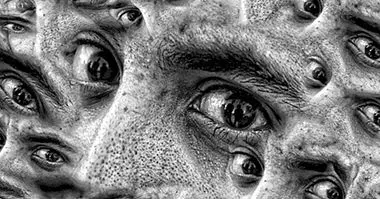Health Psychology: history, definition and areas of application
There is a large number of disciplines within psychology. While some of them focus on research, the group setting or clinical practice, Health Psychology focuses on the promotion of health and in the psychological treatment of physical illness.
In this article, we will review the history of this branch of the profession, contextualize it, define it and describe its objectives.
What do we mean by "health"?
In the preamble to its Constitution, drafted in 1948, the World Health Organization defined health as "a state of complete physical, mental and social well-being , and not the mere absence of illness or disability. "
The definition itself emphasizes making a distinction with the old conception of health as the simple absence of physical problems; currently, the term "health" is used to refer also to psychosocial variables that influence biology human, which gives a key role to the Psychology of Health.
Other definitions place health and disease on a continuum. Thus, in one of its extremes we would find total health, while in the other we would find premature death due to the absence of health.
Likewise, more and more importance is given to the understanding of health as a state and as resource that allows to achieve the goals and meet the needs of individuals and social groups in relation to their environment.
History of Health Psychology
The functions currently carried out by Health Psychology have traditionally been the subject of attention in various disciplines.
We can consider that the emergence of Health Psychology was a slow and progressive process. Here we find several key moments and contributions that need to be mentioned in order to understand the development of this field.
The biomedical model and the biopsychosocial model
Traditionally, the health from a dualistic perspective that separates the body and the mind. This point of view would be encompassed in what we know as a "biomedical model", popularized in the West during the Renaissance, a period in which there was a reunion with science and with reason, overcoming the religious explanations that prevailed at that time.
In the late nineteenth and early twentieth centuries advances in medicine led to a change of direction in this field and other related. Besides the improvement in medical interventions and quality of life In general, infectious diseases, which until then had been the main focus of medicine, could be treated more effectively. This shifted the attention of medicine towards chronic diseases derived from lifestyle, such as cardiovascular disorders and cancer.
The biopsychosocial model proposed by Engel it ended up replacing the biomedical model. Unlike this one, the biopsychosocial model highlights the relevance and interaction of psychological and social factors along with biological ones. This perspective raises the need for personalized and interdisciplinary treatments, since the intervention must address the three types of variables.
- Related article: "The valuable contributions of René Descartes to Psychology"
Influences and background
Johnson, Weinman and Chater (2011) point to several fundamental near-backgrounds in the emergence of Health Psychology as an independent discipline.
Among these, the obtaining of epidemiological data that relate behavior to health , the appearance of Psychophysiology and Psychoneuroimmunology, and the addition of behavioral science and communication skills (to improve the relationship with patients) to medical training.
The development of disciplines such as Psychosomatic Medicine and Behavioral Medicine . Both the one and the other focus on the treatment of physical illness through psychological intervention techniques, although Psychosomatics arose from psychodynamic approaches and Behavioral Medicine behaviorism.
Currently the term "Behavioral Medicine" is used to name an interdisciplinary field that includes contributions from psychology but also from other sciences, such as pharmacology, nutrition, sociology or immunology. This gives it a broader scope of action than that of Health Psychology.
The emergence of Health Psychology as a discipline
In the year 1978 the American Psychological Association created its 38th Division: the one belonging to the Psychology of Health. Joseph D.Matarazzo was named its president and Division 38 launched shortly after its first manual ("Health Psychology, A Handbook") and an official magazine.
Since then, the Psychology of Health has specialized in treatment of physical and psychological diseases , like depression. However, the progress of this branch of psychology has been faster in some countries than in others due to its relationship with public health; for example, in Spain the scarce government investment in psychology makes the Psychology of Health a relatively infrequent specialization.
Defining the Psychology of Health
Although the Psychology of Health does not have an official definition, Matarazzo (1982) described it as a field that encompasses diverse contributions of psychology in relation to education, science and the profession, applied to health and illness.
The American Psychological Association proposes that the Psychology of Health is an interdisciplinary field that applies the knowledge obtained by psychology to health and disease in health programs . These interventions are applied in primary care or in medical units.
Thielke and others (2011) describe four subdisciplines within the Psychology of Health: Clinical Health Psychology, Public Health Psychology, Community Health Psychology and Critical Health Psychology, aimed at social inequalities related to health.
goals
For Matarazzo, the Psychology of Health has several determined goals that we will describe next.
1. Health promotion
This is one of the most characteristic aspects of Health Psychology. Medicine has traditionally been insufficient in the treatment of a good number of diseases, especially those that are chronic and that require a change in habits, such as cardiovascular diseases or respiratory problems due to tobacco use.
Psychology has a greater number of resources for improve adherence to treatment and relationship n between the professional and the sick. Both variables have been fundamental in the effectiveness of medical treatments.
2. Prevention and treatment of diseases
Both Medicine and Clinical Psychology have historically focused on the treatment of illness (physical and mental, respectively). However, both have neglected the prevention of diseases, an unavoidable aspect for the achievement of full health.
The Psychology of Health has been applied to a large number of physical illnesses. These include cardiovascular disorders, cancer , asthma, irritable bowel syndrome, diabetes and chronic pain, such as those derived from fibromyalgia or headaches.
Likewise, Health Psychology is key in the prevention of problems derived from habits unhealthy, such as those produced by smoking or obesity.
3. Identification of etiological correlates and diagnoses
The Psychology of Health should not be devoted simply to applied tasks of prevention and treatment of diseases, but also to actively investigate what factors influence in its appearance and its course.
In this sense, the Psychology of Health would include contributions from epidemiology, Basic Psychology and other fields of research useful for various disciplines related to health.
4. Analysis and improvement of the health system
This aspect of Health Psychology is key and implies a political component, in the sense that the sanitary measures recommended by professionals in Health Psychology should be implemented through the public health system to reach a greater number of people.
However, as we have said previously, depending on the country in which we find this objective, it is still something utopian.
Perspectives in this field
There are two main perspectives regarding the direction that Health Psychology should take, which is still a very young field.
One of them states that the discipline must specialize in bringing the knowledge of psychology to physical illness; Psychology of Health would be conceived, therefore, as an equivalent for the physical health of what Clinical Psychology is to mental health . However, this entails a regression to the dualistic conception of the human being, with the separation of body and mind as independent entities.
The other point of view proposes rather that Clinical Psychology and Health Psychology belong in reality to the same field of action. The biggest difference between the two would be the emphasis on prevention by Health Psychology, as opposed to the traditional focus of the Clinic on the pathological.
- Related article: "The 12 branches (or fields) of Psychology"
Bibliographic references:
- Amigo Vázquez, I., Fernández Rodríguez, C.& Pérez Álvarez, M. (2003). Psychological manual of health. Madrid: Pyramid.
- Johnson, M., Weinman, J. & Chater, A. (2011). A healthy Contribution. Health Psychology, 24 (12); 890-902.
- Matarazzo, J. D. (1982). Behavioural health's challenge to academic, scientific and professional psychology. American Psychologist, 37; 1-14.
- Thielke, S., Thompson, A. & Stuart, R. (2011). Health psychology in primary care: recent research and future directions. Psychology Research and Behavior Management, 4; 59-68.



















